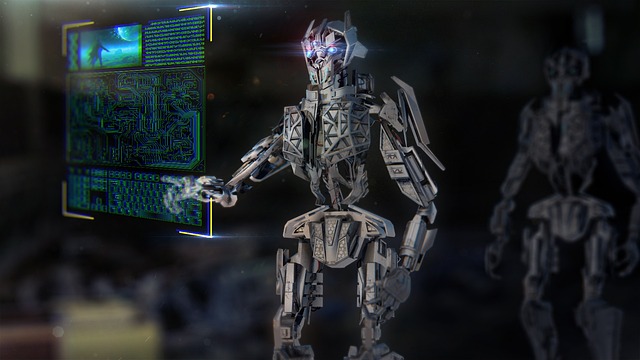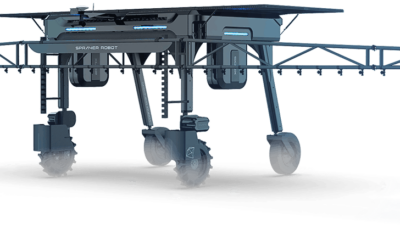As robots continue to permeate nearly every aspect of our lives, it’s becoming increasingly apparent that the rapid advancements in robotics technology will shape the future of business. From automating routine tasks to enhancing customer experiences, the integration of robotics promises to revolutionize how businesses operate, creating opportunities and challenges for companies of all sizes and industries. The implications of this technological shift are far-reaching and multifaceted, touching on everything from the nature of work and employment to the ethics of decision-making by autonomous systems.
As businesses navigate this rapidly evolving landscape, staying tuned to the latest developments in robotics is more critical than ever. With the ability to perform tasks faster and more accurately than humans, robots are increasingly being deployed to take over repetitive, labor-intensive work, freeing human workers to focus on more complex and value-adding activities. This also can lead to increased efficiency, cost savings, and business productivity. However, it also raises ethical and legal considerations that companies must address. Professionals at IT Support Fresno help companies implement robotics technology efficiently.
In this blog, we will explore the top ways in which robotics will change the future of businesses.
Automation of Repetitive Tasks
Automating repetitive tasks is one of the most common ways robotics is changing the future of businesses. Robotics technology has advanced to the point where robots can perform tasks faster and more accurately than humans, making them well-suited for automating repetitive, labor-intensive work. It can increase business efficiency and cost savings, as robots can work 24/7 without breaks and reduce errors.
For example, robots can take over tasks such as assembling and packaging in manufacturing, freeing human workers to focus on more complex and value-adding activities. It can increase productivity, reduce labor costs and improve working conditions for employees.
Businesses Can Meet Customer Needs Faster
Integrating robotics technology in businesses can help them meet customer needs faster and more efficiently. Robotics technology can help companies improve the efficiency of their day-to-day operations, leading to faster turnaround times and shorter lead times. This can be especially important for companies that operate in highly competitive industries, where the ability to respond to customer needs quickly can be the key to success.
Furthermore, using robotics technology can also aid businesses in improving the quality of their goods and services. The use of robots in manufacturing, for example, can lead to more precise and consistent production, resulting in higher-quality products. Similarly, robots can assist in surgeries, provide therapy and rehabilitation, and help with patient care, which can lead to improved patient outcomes and increased accessibility to medical services.
In addition, robotics technology can also help businesses gather and analyze data, providing them with valuable insights into customer needs and preferences. This enables businesses to create new products and services that meet these needs faster, satisfying customers and driving business growth.
New Business Opportunities
Robotics technology has opened up many new business opportunities across various industries.
- In manufacturing, robots can be used for assembly, packaging, and other tasks, increasing efficiency and reducing labor costs.
- In logistics, robots can be used for tasks such as sorting, transporting, and loading goods, leading to more efficiency and cost savings.
- In healthcare, robots can be used in tasks such as assisting in surgeries, providing therapy and rehabilitation, and helping with patient care, leading to improved patient outcomes, and increased accessibility to medical services.
In addition, robotics technology is also expanding into new areas such as agriculture, construction, and even entertainment, creating opportunities for new businesses to develop. The use of robotics technology also opens up opportunities for businesses to create new products and services, such as software, sensors, and other components used in robotics systems.
Robots are Creating Jobs, Not Killing Them
The idea that robots are taking jobs away from humans is a common perception, but robotics technology is creating new job opportunities for humans. As businesses automate repetitive tasks using robots, human workers are freed up to focus on more complex, value-adding activities that require creativity and decision-making skills. As a result, it can create new, higher-skilled jobs that were not previously possible.
Additionally, developing and maintaining robots and robotics systems require various specialized skills, such as programming, engineering, and design. This has led to a growing demand for workers with these skills, creating new job opportunities in robotics engineering, software development, and automation technology. Additionally, as robots become more prevalent in different industries, robots will create new jobs in areas such as robot maintenance, repair, and programming.
Increased Global Competitiveness
The increasing use of robotics technology can give businesses a competitive advantage in the global marketplace. Robotic technology can help companies to improve productivity, reduce labor costs, and increase output and efficiency. It can help businesses to produce goods and services faster, at a lower price, and with a higher quality, which can be the key to success in highly competitive industries.
Additionally, the use of robotics technology can also help businesses stay ahead of their competitors by providing them with new capabilities and insights that would not be possible without robotics. Furthermore, the integration of robotics technology can also help businesses access new markets and customers by providing them with new products and services and improving the efficiency of their supply chain and logistics operations.
Impact on the Future of Work
Robotics technology is expected to impact the future of work significantly. The increased use of robots and automation in various industries will change how we work, as machines will take over many tasks humans previously performed. This will likely result in a shift in the types of skills needed for jobs, as more emphasis will be placed on technical skills and problem-solving abilities.
Additionally, the use of robotics technology may lead to changes in the structure of businesses, as companies will likely need to adapt to new technologies and ways of working to stay competitive. Overall, while robotics technology has the potential to bring many benefits, it will also require individuals and businesses to adapt and evolve to remain relevant in the future workforce.
Post courtesy: George Passidakis, Director of Sales and Marketing at Apex Technology Management



 How to7 years ago
How to7 years ago


 More4 years ago
More4 years ago


 More6 years ago
More6 years ago


 Interview4 years ago
Interview4 years ago


 Other Internet Tech6 years ago
Other Internet Tech6 years ago


 More6 years ago
More6 years ago


 Business Ideas6 years ago
Business Ideas6 years ago

















